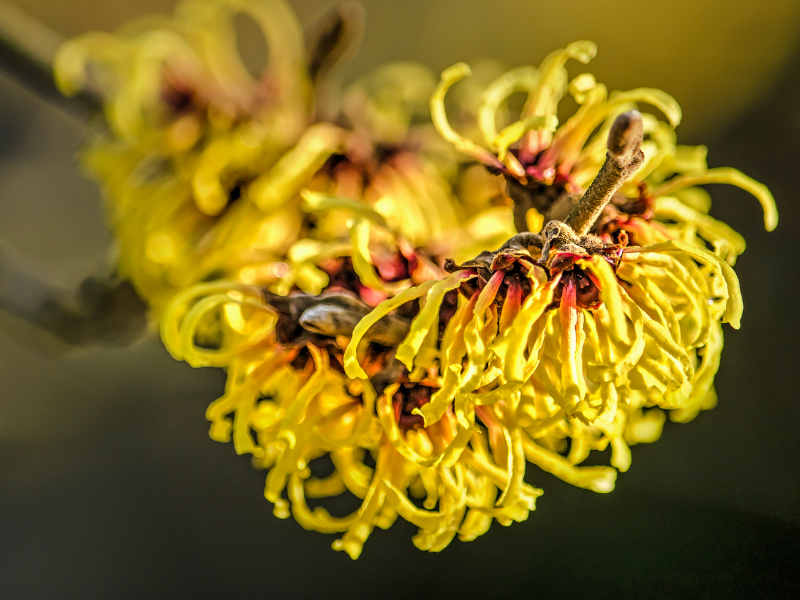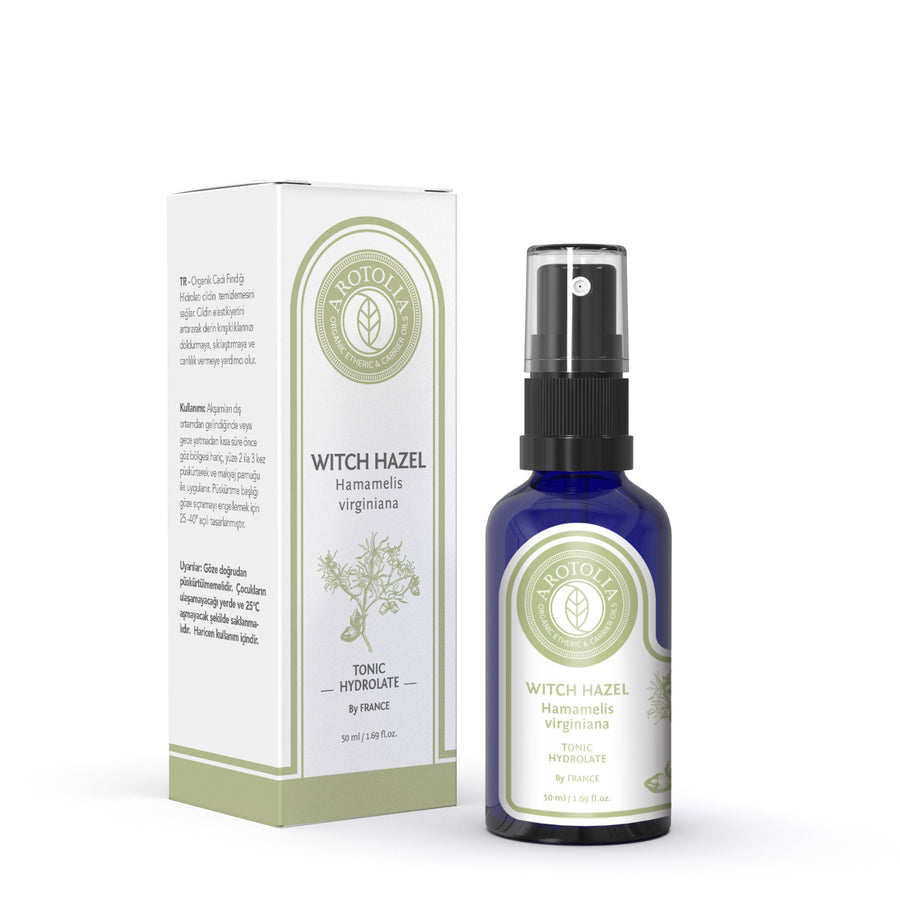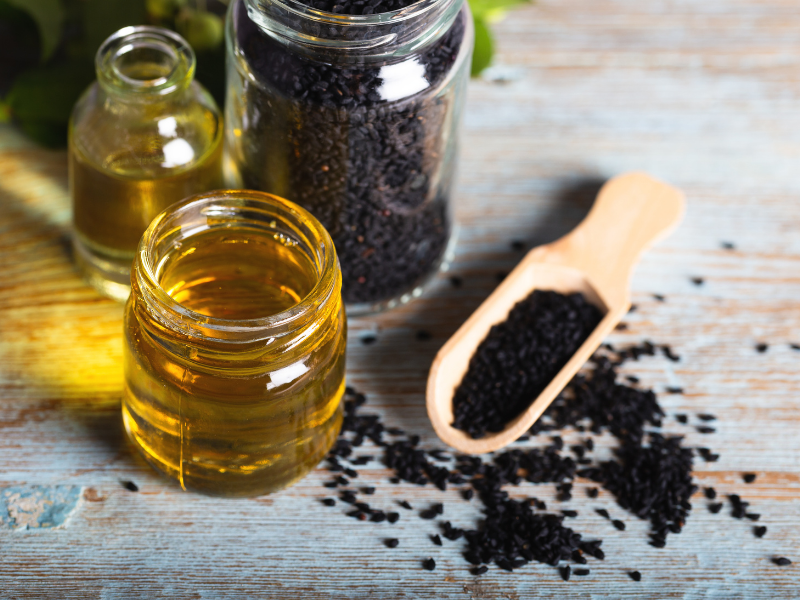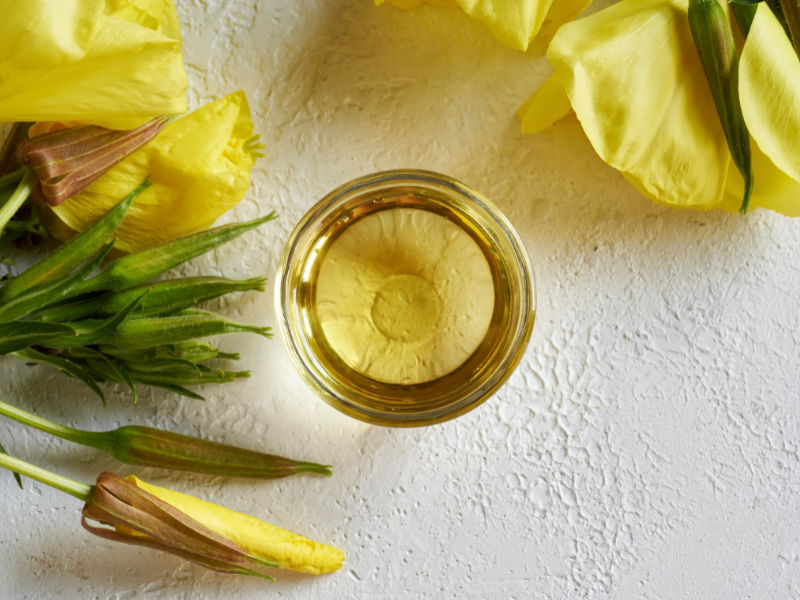
Witch Hazel Hydrosol
INCI: Hamamelis Virginiana Flower Water
CAS No: 84696-19-5
Usage Rate: Up to 100% usable
Distilled Parts: Flowers and stems
Extraction Method: Steam Distilled
Appearance: Clear, water-like liquid
Solubility: Soluble in water
pH As supplied: 2.5- 5.0
For oily hair and skin types, it is an excellent addition of up to 20% in cleansers, tonics, gels and moisturizers, reducing redness and acting as an astringent.
Witch Hazel Water Refreshes and soothes the skin. Suitable for all skin types. How to Use Witch Hazel Water? Apply to your skin by spraying or using a cotton pad. Then wipe your skin with a cotton pad.
Witch hazel is a powerful medicinal plant that can be used in a variety of ways and is known as Hamamelis virginiana. There are many species of witch hazel, but the shrub native to North America is most commonly used in folk medicine in the United States . The leaves and bark of this plant are made into teas and salves. Most commonly applied to the skin and scalp, witch hazel is known for its ability to relieve inflammation and soothe sensitive skin. It can also be added to herbal teas and taken orally in small amounts as a natural treatment for other conditions. The health benefits of the plant known as witch hazel include:
Relieves Inflammation
Inflammation is a normal immune response designed to protect the body from injury and infection. However, chronic inflammation is thought to play a central role in the development of some diseases. Witch hazel contains many compounds with powerful anti-inflammatory properties, including gallic acid and tannins. It also contains antioxidants that help prevent widespread inflammation and neutralize free radicals, which are disease-causing compounds that can build up in the body. Therefore, these herbs may have wide-ranging benefits and may be useful in treating inflammation-related conditions such as acne, eczema, or psoriasis. Research shows that witch hazel, applied topically, can effectively reduce inflammation and help soothe the skin. In short, witch hazel contains many compounds with anti-inflammatory properties that may provide far-reaching health benefits.
Reduces Skin Irritation
Sensitive skin, defined by abnormal sensory symptoms, is a very common condition affecting up to 45% of the population. Some studies suggest that applying witch hazel topically to sensitive skin may be helpful in treating inflamed, irritated, or chapped skin. In fact, it has been shown to suppress erythema, the reddening of the skin caused by injury or irritation, by up to 27%. A study in 40 people found that using a lotion containing witch hazel extract was 10% effective in reducing skin inflammation and treating erythema. Similarly, another small study found that a topical preparation containing witch hazel may provide relief for sensitive or irritated facial skin. Witch hazel may help reduce skin redness and provide relief for irritated and sensitive skin.
Helps Treat Hemorrhoids
Hemorrhoids are caused by swelling of the veins in the rectum and anus, causing inflammation and symptoms such as itching and bleeding. Witch hazel is often used as a natural remedy to relieve the discomfort and pain caused by hemorrhoids. It is usually applied with a cloth or cotton ball and applied directly to the affected area to soothe the skin. Although research is limited, witch hazel is believed to help treat the itching, redness, pain, and swelling associated with hemorrhoids due to its anti-inflammatory effects. It also has hemostatic properties, meaning it can stop bleeding caused by hemorrhoids. However, more human studies are needed to examine the effectiveness of witch hazel on hemorrhoids.
Fights Acne
Because of its powerful anti-inflammatory properties, some research suggests that witch hazel may be beneficial in treating acne. For maximum effectiveness, it can be applied directly to the face after cleansing or steaming. It acts as an astringent, causing tissues to contract to shrink pores while soothing the skin and reducing inflammation. This can prevent acne-causing bacteria from infecting the skin. For this reason, witch hazel is added to many over-the-counter acne products and is especially beneficial for people with oily skin. Still, studies on the effects of witch hazel on acne are limited, and more research is needed to determine its effectiveness.
Reduces Scalp Sensitivity
Scalp sensitivity can be caused by a number of factors, from cosmetic hair treatments to dermatological conditions like psoriasis or seborrheic dermatitis. Applying a little witch hazel to the scalp before washing your hair may help treat scalp sensitivity, providing relief from symptoms like itching and tenderness. According to one study in 1,373 people, using a shampoo containing witch hazel extract was effective in reducing scalp irritation.
It also helps with scalp sensitivity caused by conditions such as psoriasis or eczema. It may also help relieve inflammation, which may be helpful in reducing dandruff. It is sometimes used as a natural remedy to relieve symptoms of other scalp problems, such as dandruff and dryness. However, additional research is needed to evaluate the effectiveness of witch hazel in treating these conditions.
Soothes Sore Throat
Because of its ability to reduce inflammation and act as an astringent, witch hazel is sometimes used to treat sore throats. Boiling one teaspoon (5 ml) of witch hazel in one cup (240 ml) of water for about 10 minutes, then gargling with the mixture may provide relief. This is believed to help reduce swelling caused by a sore throat, reduce pain, and dry up excess mucus. However, while witch hazel’s anti-inflammatory properties are well-documented, its use for treating sore throats is based solely on anecdotal evidence. High-quality studies are needed to determine its potential benefits for sore throats. Additionally, taking this herb by mouth may cause stomach irritation, due to its high tannin content, so it’s important to use caution and consult a doctor if there are any concerns.
Protects Against Skin Damage
Witch hazel is rich in tannins, a natural plant compound that has powerful antioxidant properties that may help protect the skin from potential damage when applied topically. One animal study found that tannins may act as a barrier to prevent inflammatory substances from entering skin cells. What’s more, one test-tube study has shown that witch hazel may help neutralize harmful free radicals and prevent the spread of skin cancer cells. Similarly, another animal study found that the tannins in witch hazel may slow skin tumor growth in mice exposed to radiation. However, most research is currently limited to test-tube and animal studies. More studies are needed to evaluate the effects of witch hazel in humans.
Getting Rid of Infection
Some studies suggest that witch hazel may be helpful in fighting certain types of viral infections. For example, one test-tube study found that tannins had antiviral effects against both influenza A and human papillomavirus (HPV). Another test-tube study showed that witch hazel extract inhibited the activity of herpes simplex virus 1, which is often the culprit behind cold sores. For this reason, the herb is applied topically as a natural remedy to fight colds and relieve symptoms. However, while test-tube studies have shown promising results, human studies are still lacking. More studies are needed to examine the effects of witch hazel in healthy adults and its potential impact on viral infections.




